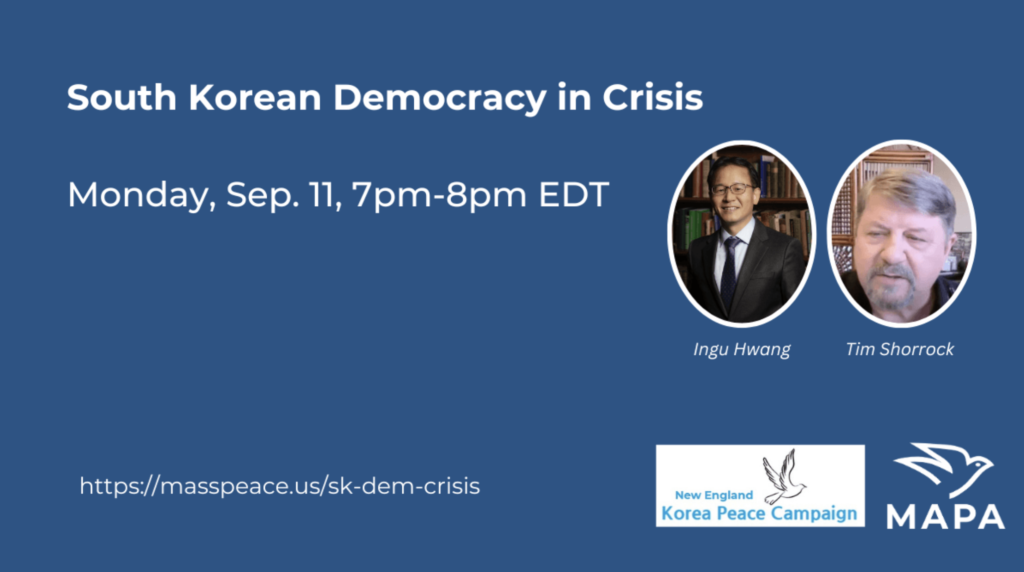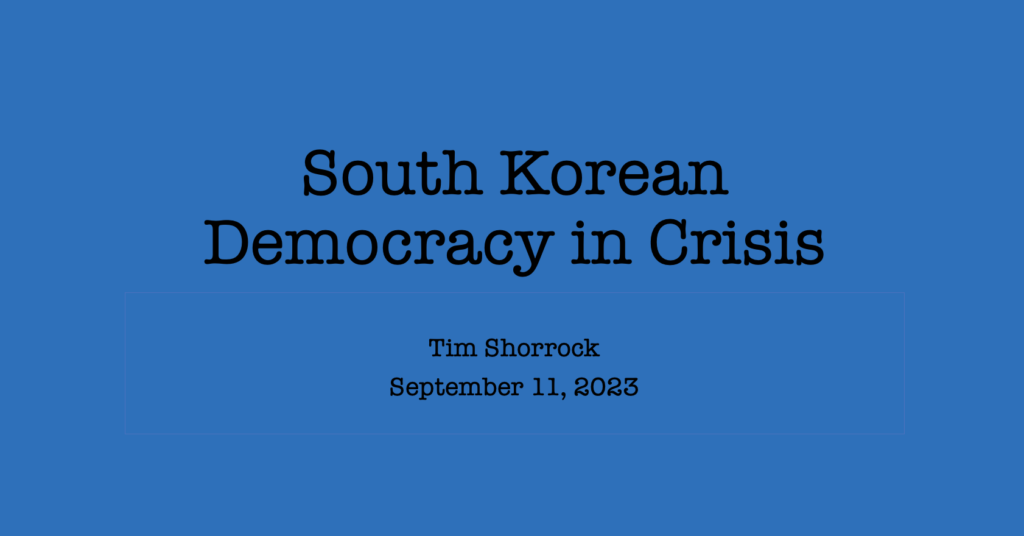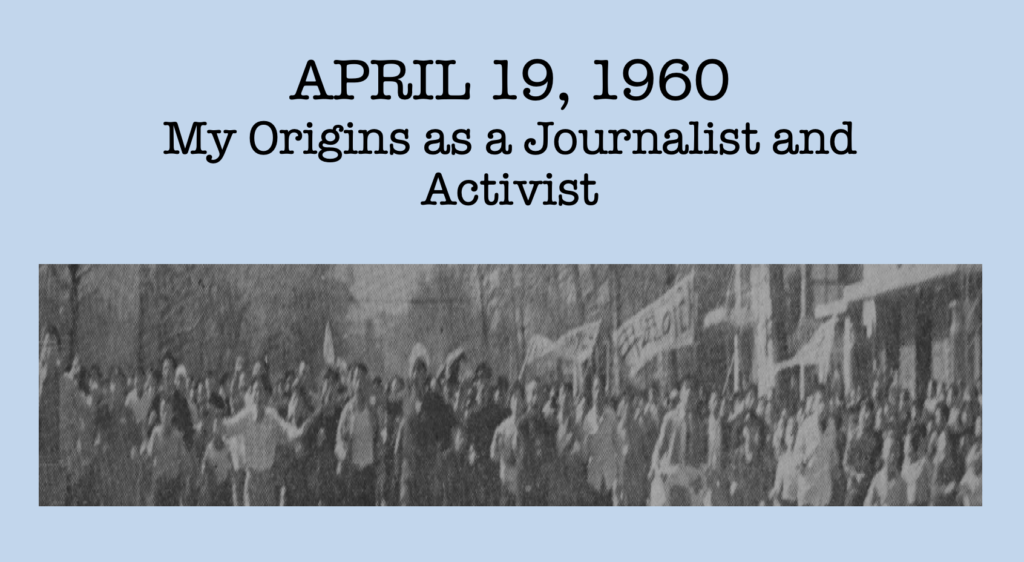
On September 11th, I was a panelist with the Korean historian Ingu Hwang for a seminar on South Korea’s democracy, past and present, sponsored by Massachusetts Peace Action. I was happy to speak after Ingu, who wrote a book, Human Rights and Transactional Democracy in Korea, in which my work during and about the 1980s democracy movement in South Korea was highlighted. Here is how we were introduced:
Since assuming office, the administration of President Yoon Suk Yeol carried out many actions that have undermined ongoing struggles for peace, justice, and democracy in South Korea, including expanding costly and provocative U.S.-ROK military exercises, heightening tensions with North Korea, rolling back workers’ rights, and threatening to abolish the ministry of gender equality. Harkening back the military dictatorship era of the 1960s through the 80s, the Yoon administration practically outlaws all labor union activities, grossly ignores human rights violations of workers, women, and various minorities, and, above all, severely limits the freedom of the press and assembly. Blinded by a push for the new Cold War in Asia, “liberal” Biden administration supports this extreme far-right Yoon administration.
In this timely webinar, first, Professor Ingu Hwang looks back at the state of South Korean democracy during the 60s-80s military dictatorship era and how South Korean democratization movement mobilized international human rights movement during this period. This will be followed by Mr. Tim Shorrock’s discussion of the current crisis in democracy in South Korea, and how this threatens regional peace and security and what we can do to support Koreans.
Ingu Hwang is an Associate Professor of the Practice in the International Studies Program and a leader of the Global Korea Project at Boston College. His research centers on contemporary transnational and global Korean history with a focus on the topics of democracy, peace, security, and human rights. His first book, Human Rights and Transnational Democracy in South Korea, published by the University of Pennsylvania Press in 2022, offers the first account of the historical intersection between South Korea’s democratic transition and the global human rights boom in the 1970s and 1980s. He has begun work on a second book that explores Kim Dae-jung’s thoughts, actions, and politics on democracy, social justice, and peace.
Tim Shorrock is a Washington-based journalist who grew up in Japan and South Korea. He posts regularly about US policy in Asia at his website The Shorrock Files. For many years, Shorrock was a correspondent for The Nation, and his work has been featured in Responsible Statecraft, Salon, Foreign Policy in Focus, The Progressive, The New York Times, Inter Press Service, and South Korea’s Hankyoreh and Newstapa. Shorrock is the author of Spies for Hire: The Secret World of Intelligence Outsourcing (2008). His most recent feature is 70 Years After the Armistice: The U.S. Introduces a New Trilateral Alliance with South Korea and Japan that Could Keep US Troops in Asia Forever.
My presentation was in part personal. I recounted how I was drawn into the antiwar and pro-democracy movements as a kid growing up in Seoul and the key events that propelled me into a career of activist journalism. Afterwards, several participants asked me for the PowerPoint slides I had prepared to illustrate my talk. The PowerPoint file is too large to post here, but the video of our seminar, with both 0f our presentations, is available now on YouTube. Watch it below.
South Korean Democracy in Crisis, 9/11/2023.



